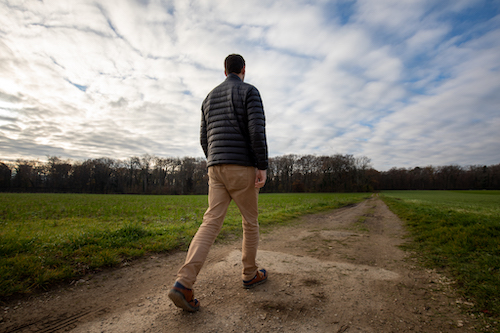
by Lee Eldridge, The Athlete Tribe
We all have stress. We all need stress. It does not matter what job we have, our family situation, our personal life, or our training programme. Stress is around us.
Stress is essential to change us as human beings. We either adapt to the stimulus that is put in front of us, or we don't. Some people argue that it is not the fittest who succeed; it is the most adaptable. I would say both.
Therefore, it's vital to think about stress-coping methods, such as:
1. Improving stress resilience
2. Improving stress management
High levels of stress can ultimately cost companies profits, jobs and lives (in the extreme).
If we think about it, there are two ways to reduce this, either become better at handling stress or reduce/manage stress. Let's start with stress resilience.
Stress Resilience
How much stress can you take? This can be a very open question to answer. Is it the amount of stress you can take but still keep performing, or the amount of stress you can take and survive?
We need to understand the two situations and recognise which one we are in. Think about professional sport — in and out of season: stressful games or stressful training.
As an athlete, it is impossible to keep training at preseason levels all year round. Otherwise, there would be an increased risk of injury and a drop in performance. Therefore, we design into the programme deload weeks to allow the body to recover.
In-season we are looking to make sure that we are ready for the competition. We can still develop an athlete, but the priorities switch to games/the event.
Now relate that to your situation.
How can we be expected to work on high-pressure projects all year round? It's impossible. We need to build in deload weeks and the opportunity to adapt.
Stress Management
The easiest way to manage stress is to reduce it. I am not for one minute suggesting that you look for ways to run away from stress or not take on projects or challenges. Challenges are part of life; we have challenges from the moment that we are born. But when I am coaching individuals and teams, a massive problem is the number of things going on. For example, I know one individual with two businesses, two children, a partner, is training for a half ironman and trying to have healthy relationships with friends and family. We end up putting so much pressure on ourselves that it's easy to see why stress becomes a problem.
The Power of a Positive No
It is in our nature to say yes; it's how we feel we will get ahead. If we say no, we think we'll miss out (FOMO). When we keep saying yes, we have less time to put towards what truly matters. I strongly suggest that everyone reads the book "The Power Of A Positive No" by William Ury. Saying no to things is essential to achieving goals and reducing stress. The best people that I have worked with have done this.
Victor Franks talks about the time between stimulus and response. We have an opportunity to think about our response to the demand. If you are not sure, the easiest way to give you more time is by saying, "Thanks so much for asking me to do XYZ... but can I get back to you about it?" Saying this allows you time to walk away from the situation and then make the right decision in a controlled environment.

Stress Release
A part of stress management is stress release. The ability to release stress is a crucial skill in ensuring that we can cope. Everyone has different techniques to release stress, but the essential concepts are exploring all methods.
I come across people talking about physical activity or training as a stress releaser — and I agree 100%. The research heavily backs this up. The problem is that we don't think that stress is stress. So if you are heavily stressed in one area, for example, work, and you are also training hard, this adds more stress into the system. We have similar body and mind reactions to stress. So what can you do? Well, if you were to look at a professional endurance athlete, they would spend 80% of their training time doing low-intensity work.
Low-intensity training is a great tool to reduce stress. What is low-intensity training? Think of a scale of 1 to 10, 1 being very, very easy, ten a maximum effort. We should be aiming for a 3 or 4 out of ten, depending on your fitness level that might be a brisk walk, slow jog or easy run.
Over the last five years of working with high-performance businesses, there has been a shift to being more open about eastern relaxation methods and performance improvement. Meditation and breathwork are the two main tools that are used. My advice is always little and often. I would much prefer 2 or 3 minutes of breathwork twice or three times per day, enabling you to gain consistency and frequency.
I am saying that you need to be the key to your outcomes and ask yourself whether you agree to do this work. Does it align with my goals and values?
Summary
Understanding stress resilience and management is essential for performance in life. Stress is stress, physical, mental or emotional. Stress can be highly favourable to us; it causes adaption and change. The problem is when stress is too high and occurs too fast.
Please feel free to get in contact if you have any questions here.
Lee
Director and Founder
www.theathletetribe.com
Thank you for the 2 photos above courtesy of ©Jennifer Firmenich https://www.jenniferfirmenich.com
Author Bio
 Lee Eldridge is a leading human performance coach and founder of The Athlete Tribe. The Athlete Tribe is a bespoke human performance group, created to enable people to achieve—and sustain—their full potential. Founded in 2019, he offers a unique performance system designed around the principle that Everyone’s An Athlete, using proven techniques in adaptive leadership and flow.
Lee Eldridge is a leading human performance coach and founder of The Athlete Tribe. The Athlete Tribe is a bespoke human performance group, created to enable people to achieve—and sustain—their full potential. Founded in 2019, he offers a unique performance system designed around the principle that Everyone’s An Athlete, using proven techniques in adaptive leadership and flow.






